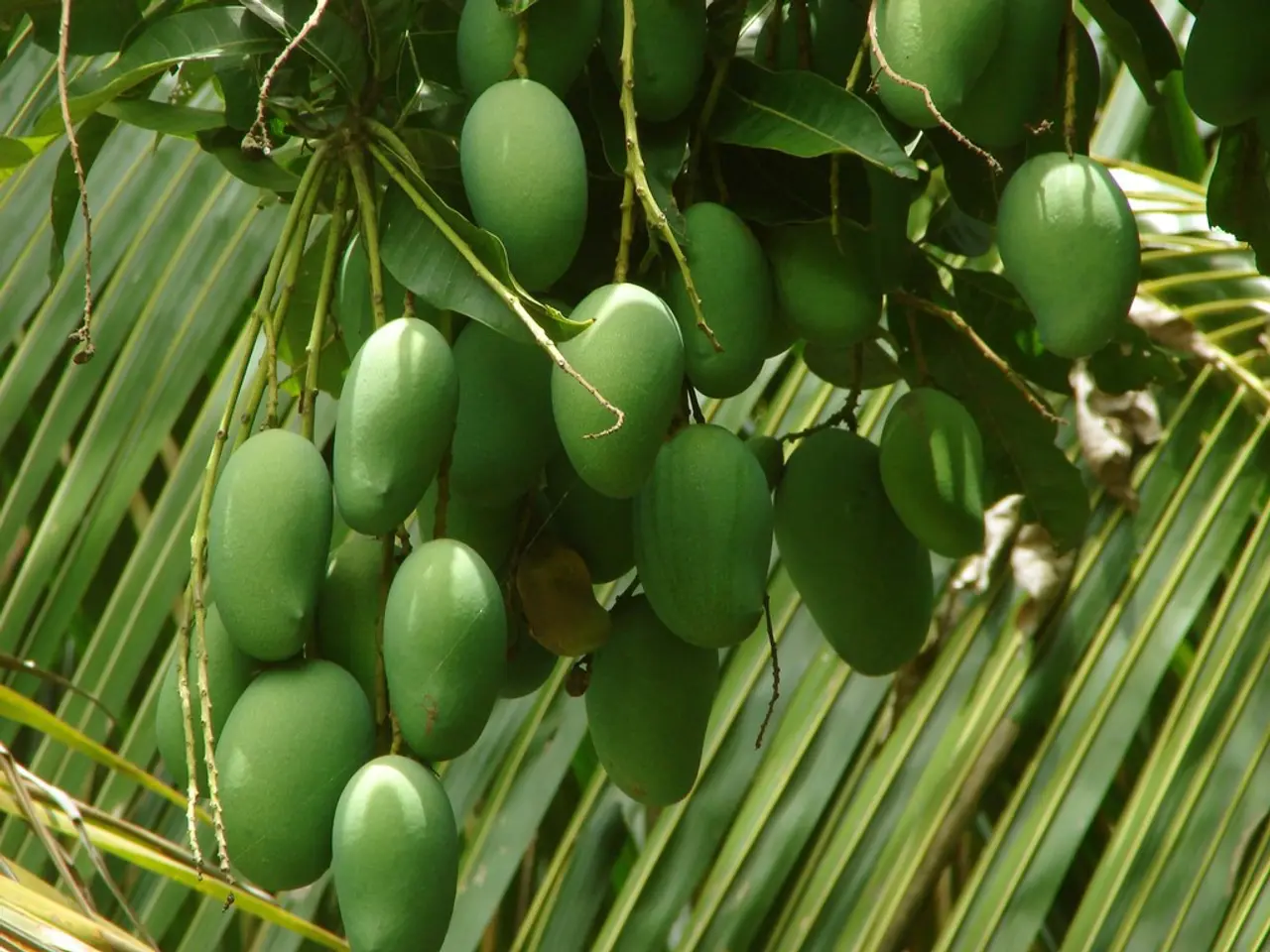Profitable Elements for Running a Successful Mango Orchard in India
As the date of 30 November 2024 approaches, a new venture in mango farming is set to take root in India. The farm's design prioritises proper sunlight and airflow, ensuring a healthy environment for the mango trees.
The cultivation plan outlines the operational components of the farm, with a focus on high-demand mango varieties like Alphonso, Totapuri, and Banganapalle, which fetch premium prices domestically and internationally. Understanding the fruit market, including demand, trends, and competition, is crucial for the farm's success.
Market Analysis
The farm's strategy includes setting up clusters in regions such as Ratnagiri (Maharashtra), Junagadh (Gujarat), and Malihabad (UP), aligning with export hubs supported by infrastructure like cold storage, packhouses, and quality labs under public-private partnerships. Leveraging trade agreements and focusing on value-added mango products such as mango pulp and processed goods will diversify income and reduce wastage.
Land and Location Factors
Choosing land categorised as horticultural or plantation land with good drainage, fertile soil, and access to water is essential. Mango trees thrive in well-drained, sandy loam soils with a pH of 5.5–7.5. Ideal growing regions include Maharashtra, Uttar Pradesh, Andhra Pradesh, Gujarat, and Telangana, as designated mango cultivation and processing clusters. Sustainable land management practices such as organic mulching, fertigation, and conservation of pollinators will enhance productivity and environmental resilience.
Cultivation Plan
Selecting high-yield and hybrid varieties like Amrapali will increase production and profits. Implementing good agricultural practices including planting spacing, irrigation scheduling, pruning, pest and disease management, and nutrient management are crucial. Considering intercropping or crop diversification will improve land use efficiency and income stability. Planning for post-harvest handling with access to cold storage and packhouses will maintain fruit quality, especially for export markets.
Financial Planning
Preparing for initial investment costs covering land preparation, saplings, irrigation setup, fertilizers, labor, infrastructure (storage, packhouses), and marketing is vital. Exploring government subsidies and schemes such as PMFME (Prime Minister’s Formalisation of Micro Food Processing Enterprises) for processing units, and availing term loans from banks or NBFCs to support capital needs will be essential. Budgeting for marketing efforts, waste management strategies, and brand establishment is also crucial.
In conclusion, success in mango farming in India requires integrating sustainable agricultural practices, choosing the right region and varietals, building infrastructure for post-harvest processing, exploring export markets, and carefully planning finances with support from government and trade frameworks. The farm's executive summary explains its goals, vision, and purpose, ensuring a solid basis for future expansion.
- To maximize returns, the entrepreneur should consider investing in high-yield and hybrid mango varieties like Amrapali, ensuring a profitable small-business in the housing-market of mango farming.
- As the business grows, it's essential to focus on personal-finance management, preparing for initial investment costs in land preparation, saplings, irrigation setup, and infrastructure.3.To secured funding, the entrepreneur can avail term loans from banks or Non-Banking Financial Companies (NBFCs), while also exploring government subsidies like PMFME for processing units.
- Success in this venture extends beyond cultivation, requiring understanding the real-estate implications (in terms of land categorization, drainage, soil fertility, and access to water), as well as the business aspects, such as competition, demand trends, and product diversification into value-added mango products like mango pulp and processed goods.




